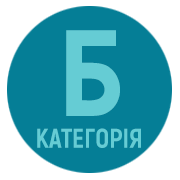SUBJECTNESS OF PEDAGOGICAL UNIVERSITY STUDENTS IN THE CHANGING EDUCATIONAL ENVIRONMENT
DOI:
https://doi.org/10.32782/psyspu/2023.2.3Keywords:
students, pedagogical higher education institution, communicative interactions, conditions of study, subjective qualities, educational and communicative subjectivity.Abstract
The article is aimed at identifying the levels of development of the subjectivity of students of the pedagogical university and their connection with the ability for joint (cooperative) interactions in changing learning conditions. In the course of the conducted research, data were obtained on the level of development of the stages of subjectivity and subject qualities that ensure activity in communicative interactions. The research was of pilot nature and will be continued in the future on a wider sample of students. However, the obtained results indicate the need for a wider use of active methods of teaching students of pedagogical higher education. First of all, it is about the development of such subject qualities that would ensure the practical application of the acquired knowledge as a means of learning, including the ability to subject-generative and subject-joint types of interaction in the learning process. The obtained results make it possible to affirm that transferring the training process of future teachers to middle school increases the number of 5th year students with a high degree of expressiveness of “low” stages of subjectivity and reduces the number of students with a high degree of expressiveness of “high” stages. Correlation analysis (r-Spearman) revealed a smaller number of connections between stages of subjectivity and characteristics of communicative interactions in the sample of the 5th course. A. Karpov’s method of structural analysis made possiblity to conclude that the structure formed in the 4th year of the studied parameters undergoes serious changes when the learning process is transferred to the middle of a general school: the index of organization of the structure in the sample of the 5th year is lower than in the sample of the 4th of the course, which indicates the appearance of breaks in the ties of educational and communicative subjectivity.
References
Капінус О.С. Методологія, теорія і методика формування професійної суб’єктності майбутніх офіцерів Збройних сил України : монографія. Житомир : Вид. О.О. Євенок, 2020. 600 с.
Татенко В. Методологія суб’єктно-вчинкового підходу: соціально-психологічний вимір : монографія. Київ : Міленіум, 2017. 184 с.
Bandura A. Toward a Psychology of Human Agency: Pathways and Reflections. Perspectives on Psychological Science. 2018. Vol. 13(2). P. 130–136. DOI: 10.1177/1745691617699280.
Martin J., Gillespie А.A. Neo-Meadian Approach to Human Agency: Relating the Social and the Psychological in the Ontogenesis of Perspective-Coordinating Persons. Integrative Psychological & Behavioral Science. 2010. Vol. 44. Issue 3. P. 252–272.
Sugarman J., Martin J. Theorizing Relational Agency: Reactions to Comments. Journal of Constructivist Psychology. 2011. Vol. 24. Issue 4. P. 321–323.







